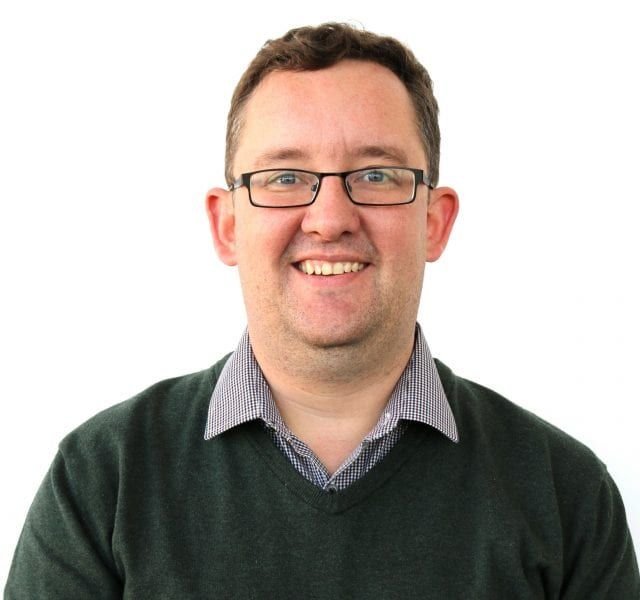 Hello everyone, my name is Jason
Hello everyone, my name is Jason
Saturday 4th February marks the official World Cancer Day 2023. World Cancer Day is a global initiative which unites people and organisations with an interest in cancer. It is led by the Union for International Cancer Control (UICC) which...
“unites and supports the cancer community to reduce the global cancer burden, to promote greater equity, and to ensure that cancer control continues to be a priority in the world health and development agenda’, through convening, capacity building and advocacy.”
World Cancer Day is one of two key platforms for the UICC, through which the organisation aims to prevent millions of deaths each year by raising awareness and education about cancer and pressing governments and individuals across the world to act decisively in our quest to detect cancer sooner, offer better treatments, and deliver improved person-centred outcomes.
Each year, the World Cancer Day campaign gains huge support across the world and invites all those involved in cancer care, services, and research to promote the work they are doing across the patient journey. This includes promoting healthy lifestyles to prevent cancer; encourage more people to take up their invitation for cancer screening; deliver innovative clinical practice and encourage holistic care.
West Yorkshire and Harrogate Cancer Alliance has proudly supported the World Cancer Day campaign and this year will be no exception. In 2023, we have chosen to extend the campaign to a week of activity across social media following the patient journey.
We will use this week to:
- Promote awareness of cancer as a disease and its prevalence.
- Explain the importance of early diagnosis in making more cancers curable and the standards we are working to, integrating national policy direction with locally identified need.
- Encourage individuals to recognise the actions they can take to minimise risk, in particular through lifestyle changes and taking up invitations for screening.
- Raise the profile of the Cancer Alliance team and ‘brand’ within the broader health and care partnership – including in the context of career opportunities available; the wide range of work – including engaging with patients – and the difference we make in our mission to ‘bring partners together to improve outcomes.’
- Emphasise the importance of personalised care for people who are living with and beyond cancer.
- Show what high-quality care means for people receiving treatment at end of life.
- Demonstrate the importance of listening to the patient voice and ensuring that services are shaped by what matters most to people affected by cancer.
- Celebrate our achievements as a community of organisations coming together for a common purpose.
- Build an understanding of the need to tackle health inequalities, building upon the UICC theme for this year’s #WorldCancerDay2023, which is - #CloseTheCareGap - highlighting the specific challenge in West Yorkshire and Harrogate.
World Cancer Day provides an opportunity for all of us in the Cancer Alliance Programme Management Office to work together as a team to place an even greater spotlight on cancer and the importance of delivering our ambition as a system to help more patients to be able to access cancer care with curative intent.
As Programme Director, I’m proud of the way we are all uniting behind and contributing to this campaign - our internal clinical leadership team of Dr. Helena Rolfe as Clinical Director, Hazel (Baz) Rodger as our new Professional Lead and Lynn McNamee as Diagnostics Lead; our programme and project managers; data analysts; communication and engagement specialists; business support professionals and wider network of clinical directors.
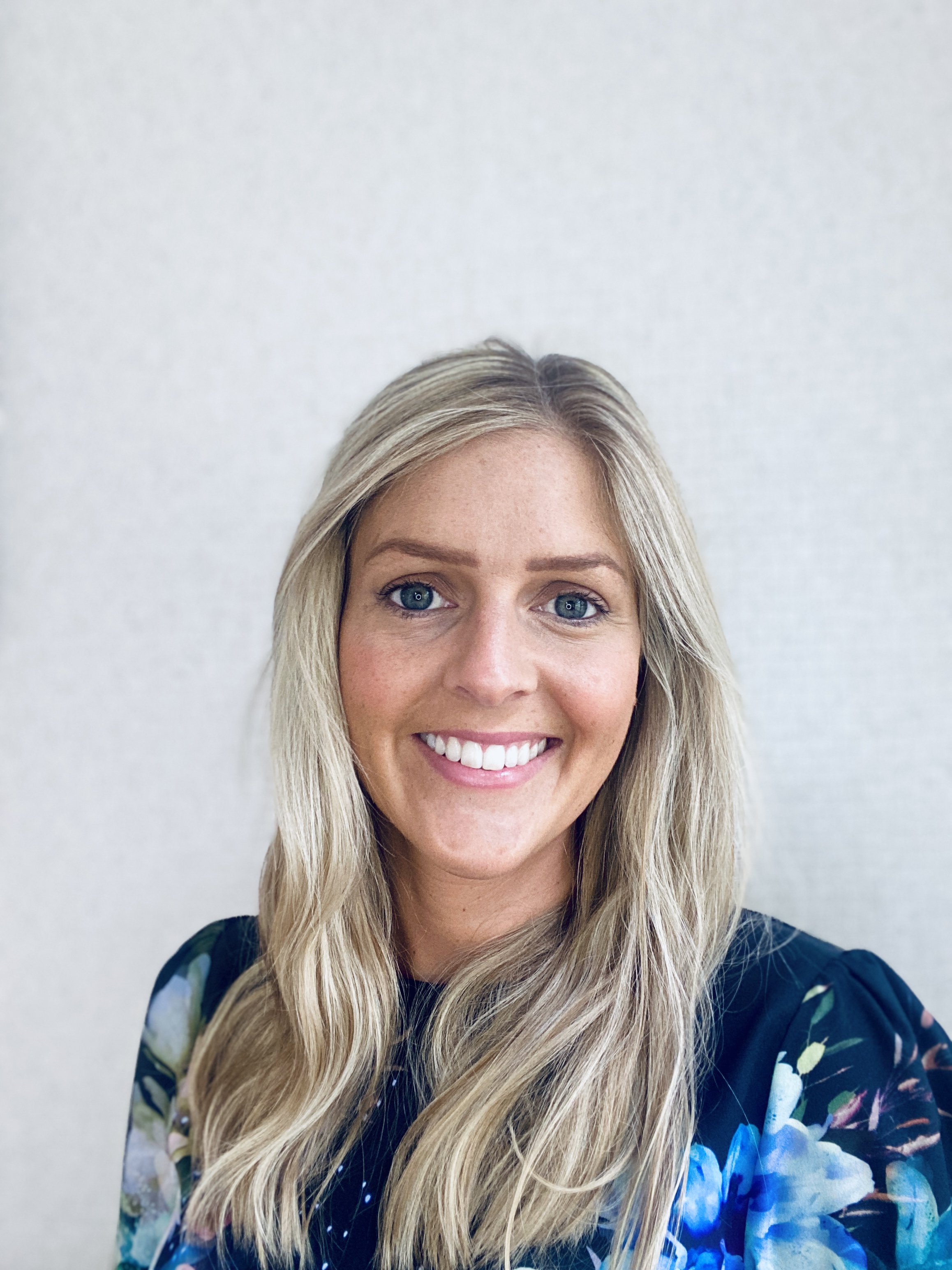 World Cancer Day builds on the recent and successful Cervical Cancer Prevention week, where our health inequalities lead, Hayley Snowden, secured a fantastic opportunity to work with local social media influencer Shaheen Kauser – herself a member of the Integrated Care Board team in Wakefield - on the importance of cervical screening, generating a conversation with thousands of hits and re-shares amongst South Asian women and others who are part of Shaheen’s Instagram following.
World Cancer Day builds on the recent and successful Cervical Cancer Prevention week, where our health inequalities lead, Hayley Snowden, secured a fantastic opportunity to work with local social media influencer Shaheen Kauser – herself a member of the Integrated Care Board team in Wakefield - on the importance of cervical screening, generating a conversation with thousands of hits and re-shares amongst South Asian women and others who are part of Shaheen’s Instagram following.
Our activity during campaign week also developed into a headline news item on BBC Look North where Hayley was able to contribute to an item involving Jo’s Cancer Trust and a local patient ambassador focussing on attracting the attention of women with busy lives and other pressing priorities who can easily overlook the importance of their screening appointment and put things off. We will be building on these successes with a programme of awareness raising campaigns through 2023, translating national messaging into local impact.
This year, the Cancer Alliance was also delighted to share nationally a series of first-in-class videos talking patients through the screening process, with a particular focus on supporting those in our communities with a learning disability. We are now pleased to see requests coming in to host these materials from our colleagues in other Cancer Alliances around the country
The media spotlight will once again be on our team in the coming weeks, with a forthcoming cinema premiere of a series of videos focussing on living with and beyond cancer, developed collaboratively through the Alliance’s patient education bursary programme. This again is another fantastic demonstration of how working collaboratively and building from the voice of the patient can make a huge difference to our impact and reach as a transformation team.
As a Cancer Alliance, we want to be consistently on the front foot when it comes to building the role of cancer screening as a detection route, given that it still amounts to a relatively small proportion of cancer detections. Unfortunately, screening detections still track lower than detections through emergency and unscheduled care, which are typically associated with poorer outcomes. We still have huge disparities in suspected cancer referral rates and screening participation rates across places and primary care networks, which will be a major focus for ongoing support by the Cancer Alliance.
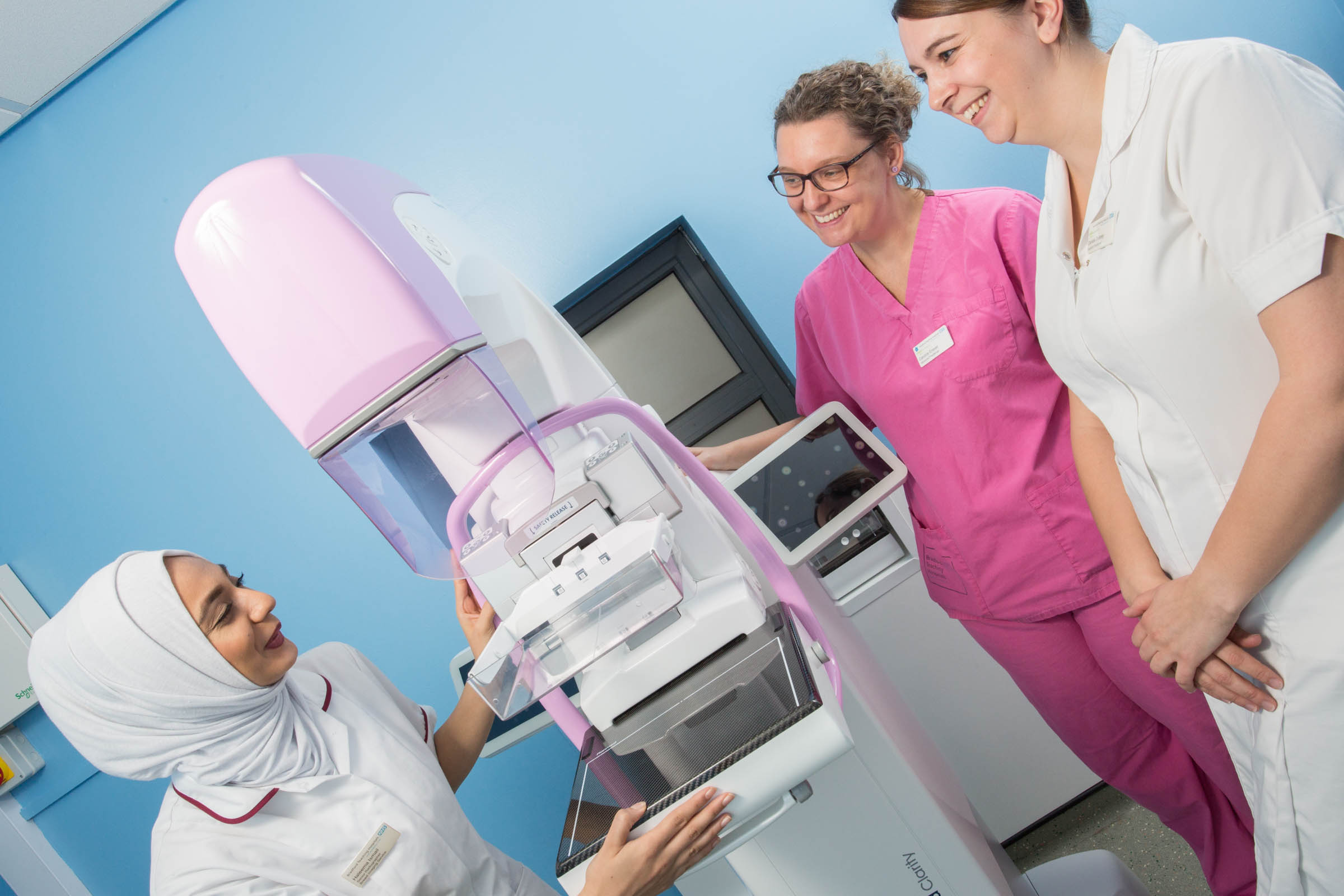 The reason why this is important is that we know, from a considerable evidence base, that early awareness raising, and screening initiatives are the interventions which have the capacity to make the biggest difference when it comes to stage of presentation and delivery of our ambition as an ICB, complimenting other initiatives such as the welcome investment in three community diagnostic centres (CDCs) in West Yorkshire. For this reason, we are not only proud also to be rolling out targeted lung health checks across the population, to combat one of our biggest causes of premature mortality, but we are also in advanced discussions around taking lung health checks one step further. This would involve, building on a successful study in Leeds, an opportunity to undertake scanning of the kidneys and an oral cavity check within the same assessment.
The reason why this is important is that we know, from a considerable evidence base, that early awareness raising, and screening initiatives are the interventions which have the capacity to make the biggest difference when it comes to stage of presentation and delivery of our ambition as an ICB, complimenting other initiatives such as the welcome investment in three community diagnostic centres (CDCs) in West Yorkshire. For this reason, we are not only proud also to be rolling out targeted lung health checks across the population, to combat one of our biggest causes of premature mortality, but we are also in advanced discussions around taking lung health checks one step further. This would involve, building on a successful study in Leeds, an opportunity to undertake scanning of the kidneys and an oral cavity check within the same assessment.
This will take us some time to work up, potentially commencing with colleagues in Wakefield, but we are hopeful of again being ahead of the game nationally. We are also pleased that the support of our system in mobilising the PinPoint blood test service evaluation seems close to fruition, with the benchmark number of cancer detections being met for urological cancers.
An independent evaluation of the clinical data will now help us to examine the role of this technology for risk stratification of patients referred on the “Two Week Wait” (or fast track) based on the use case identified. Additionally, the Cancer Alliance is keeping a keen interest in the progress and use case for Galleri blood testing (Grail), which has the capacity to potentially create a new route for asymptomatic cancer detections in our communities, focussing on those areas with residual health inequalities and gaps in outcomes. Certainty on direction of travel here is likely from 2024.
Colleagues in places, my fellow associate directors in the ICB and our hard-working colleagues in the Locality Teams are all acutely aware that as the ides of January fade, the tides of planning guidance beckon and increasingly seek out and dominate our attention!
This is one of the busiest times of the year as a Cancer Alliance as we navigate our way through a complex sequence of strategy refreshes, activity collations, joint forward plan formations, recovery plan submissions, and responses to the detailed prescription bound in the Cancer Alliance planning packs. As ever, we work hard with all our colleagues to try to integrate these potentially disparate asks into a cohesive and owned plan for delivery, which is built around our principles as a partnership, local needs, and where action at system-level make sense. It is always a pleasure to work with colleagues aligned by this common purpose and people who focus on seeking out the right choices, which are not always the easiest ones.
For cancer this year, we are expecting a message of broad continuity, and the helpful creation of a two-year funding formula to create greater certainty into our investment and planning strategies. This includes continued focus on non-surgical oncology service sustainability as a prescient local requirement. Continuity will persist except for the new programmes referenced above along with a potentially novel and welcomed intervention in pancreatic cancer, one of the disease types which has the worst one- and five-year survival rates of all cancers. This programme, developed nationally, would see the creation of regional coordinators as part of the EUROPAC study, to identify patients at elevated risk of pancreatic cancer, either associated with hereditary risk or newly onset diabetes, also associated with significant weight loss. We are hopeful that it will compliment an innovation proposal from Leeds around enhanced recovery principles for patients undergoing radical surgery for pancreatic malignancy.
Notwithstanding the above, there is always a risk of course that this complex tapestry of interdependent plans remains not commonly understood or valued. The underlying ethos which underpin this locally-led approach to the transformation of cancer care may sometimes not be fully appreciated either. For all of us, as either leaders in cancer services, or more broadly in the Partnership, there are a few useful reflections here I feel.
First, we must be broad backed enough to accept that our quest of building locally owned transformation will not be understood or indeed, sometimes accepted everywhere. There’s no point in dodging this issue. To be successful though, we need to be constantly build and reinforce our message, even where it involves taking measured risk and putting some of ourselves on the line.
The case for communities having the answer still needs to be made courageously in some quarters. We must seek out and recognise the support we need from others to make this case. When we do make this case, we must approach the challenge positively, being open and transparent around our difficulties areas for development, but also using the strengths of our achievements to make a powerful argument for the benefit of local initiation, oversight, and delivery. We need to take people with us. All of this takes time.
Second, as I am sure that our leading light colleagues in the integrated care strategy refresh – our colleagues Myron, Shane, and Esther - would remind us of, connecting and understanding more of how our system works is indeed the work itself. Building new networks and connections is a useful habit to create better ways of thinking, operating, and delivering. This method, transcribed collectively through our transformation programmes and methodologies, is indeed the best approach to deliver better quantitative impact when reduced back to its true, core, meaning.
Third, wherever our ethos is challenged, we need to be agile enough to work with it. This way, we will keep our focus on the right must-dos, and ultimately retain our focus on what is most important.
In our sphere, in practice these reflections mean developing awareness of cancer signs and symptoms, encouraging earlier presentation, and promoting better, timelier, and person-centred care right across the cancer pathway are all equally important and indeed the right must do’s. It is for this reason, amidst all the planning and busy delivery schedule, why we are truly proud to support World Cancer Day and everything that it means for our communities.
Have a great weekend everyone.
Best wishes,
Jason
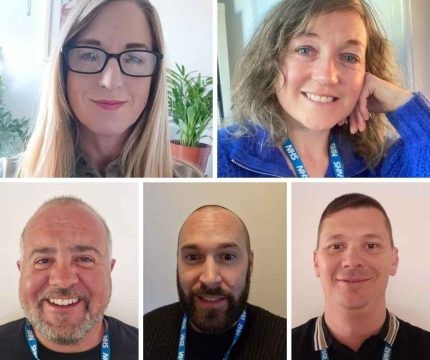 The Kirklees individual placement and support service (IPS), which supports people using secondary mental health services to find competitive paid employment, has achieved a top score in its first external review.
The Kirklees individual placement and support service (IPS), which supports people using secondary mental health services to find competitive paid employment, has achieved a top score in its first external review.

 Hello everyone, my name is Jason
Hello everyone, my name is Jason World Cancer Day builds on the recent and successful Cervical Cancer Prevention week, where our health inequalities lead, Hayley Snowden, secured a fantastic opportunity to work with local social media influencer Shaheen Kauser – herself a member of the Integrated Care Board team in Wakefield - on the importance of cervical screening, generating a conversation with thousands of hits and re-shares amongst South Asian women and others who are part of Shaheen’s Instagram following.
World Cancer Day builds on the recent and successful Cervical Cancer Prevention week, where our health inequalities lead, Hayley Snowden, secured a fantastic opportunity to work with local social media influencer Shaheen Kauser – herself a member of the Integrated Care Board team in Wakefield - on the importance of cervical screening, generating a conversation with thousands of hits and re-shares amongst South Asian women and others who are part of Shaheen’s Instagram following.  The reason why this is important is that we know, from a considerable evidence base, that early awareness raising, and screening initiatives are the interventions which have the capacity to make the biggest difference when it comes to stage of presentation and delivery of our ambition as an ICB, complimenting other initiatives such as the welcome investment in three community diagnostic centres (CDCs) in West Yorkshire. For this reason, we are not only proud also to be rolling out targeted lung health checks across the population, to combat one of our biggest causes of premature mortality, but we are also in advanced discussions around taking lung health checks one step further. This would involve, building on a successful study in Leeds, an opportunity to undertake scanning of the kidneys and an oral cavity check within the same assessment.
The reason why this is important is that we know, from a considerable evidence base, that early awareness raising, and screening initiatives are the interventions which have the capacity to make the biggest difference when it comes to stage of presentation and delivery of our ambition as an ICB, complimenting other initiatives such as the welcome investment in three community diagnostic centres (CDCs) in West Yorkshire. For this reason, we are not only proud also to be rolling out targeted lung health checks across the population, to combat one of our biggest causes of premature mortality, but we are also in advanced discussions around taking lung health checks one step further. This would involve, building on a successful study in Leeds, an opportunity to undertake scanning of the kidneys and an oral cavity check within the same assessment.  In Bradford, the council, health and voluntary and community sector partners have come together to support residents with the cost-of-living crisis.
In Bradford, the council, health and voluntary and community sector partners have come together to support residents with the cost-of-living crisis.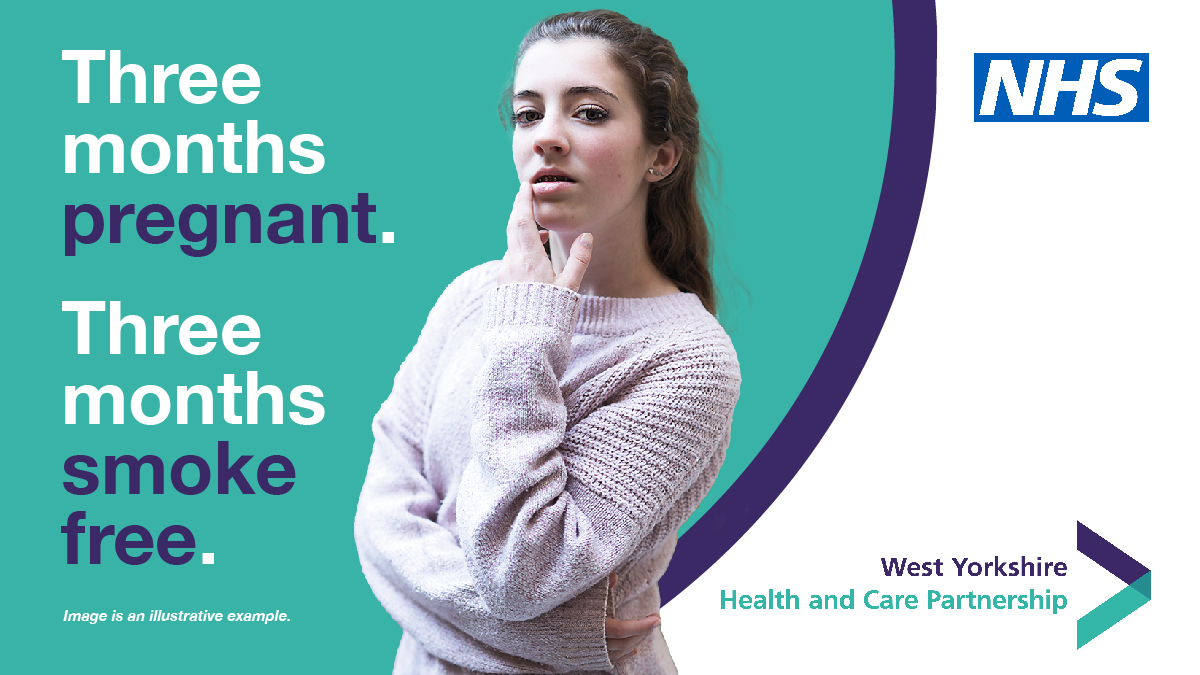 The
The 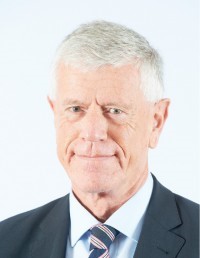 Local community care providers from across the area met on Tuesday 31 January. The meeting was chaired by Brodie Clark CBE, Chair of Leeds Community Healthcare NHS Trust. The group meets to discuss shared learning, development of good practice and where they can work together to tackle challenges. There were agenda items on the collaborative’s purpose, approach, work programme and governance as well as updates on the group’s action plan, the ICB Board, benchmarking and best practice. The conversation was constructive, positive and ambitious, with a clear pride and determination on the positive work being progressed in communities and within important allied diverse partnerships. It felt like the early stages of an important West Yorkshire community journey, with many interesting and positive considerations at an early shape around the table.
Local community care providers from across the area met on Tuesday 31 January. The meeting was chaired by Brodie Clark CBE, Chair of Leeds Community Healthcare NHS Trust. The group meets to discuss shared learning, development of good practice and where they can work together to tackle challenges. There were agenda items on the collaborative’s purpose, approach, work programme and governance as well as updates on the group’s action plan, the ICB Board, benchmarking and best practice. The conversation was constructive, positive and ambitious, with a clear pride and determination on the positive work being progressed in communities and within important allied diverse partnerships. It felt like the early stages of an important West Yorkshire community journey, with many interesting and positive considerations at an early shape around the table.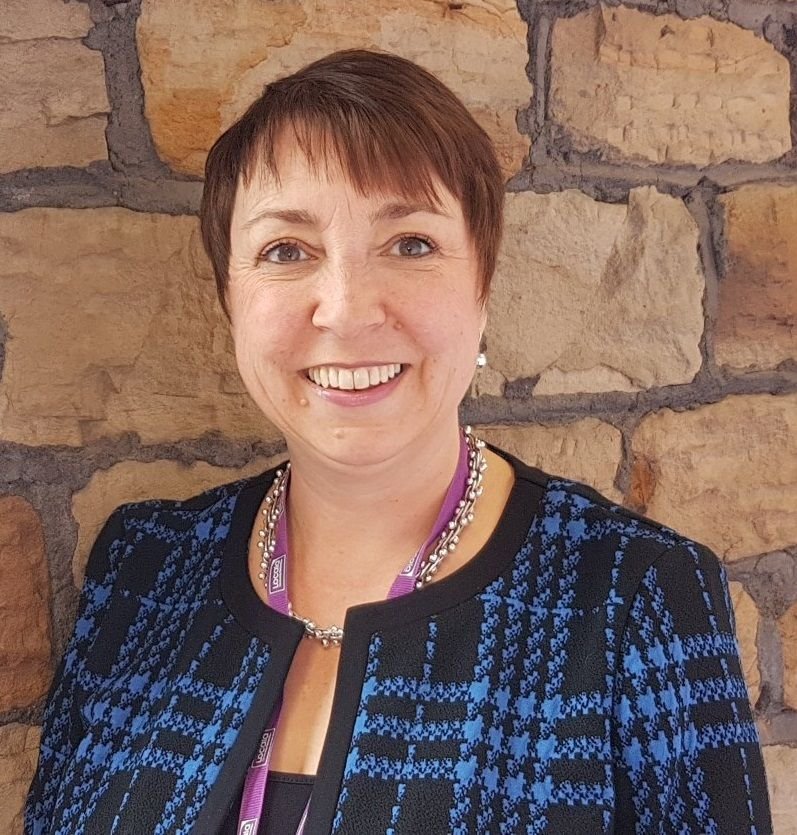 Karen Jackson, CEO for Locala Community Partnership and the ICB sector lead for the collaborative, discussed how the work of the collaborative is brought to the ICB in terms of governance and the value of having a strong community care provider voice present at the board. She outlined key issues to feedback to the board: future funding models to achieve better outcomes for patients and alleviate system pressures; the role of community services in the newly announced
Karen Jackson, CEO for Locala Community Partnership and the ICB sector lead for the collaborative, discussed how the work of the collaborative is brought to the ICB in terms of governance and the value of having a strong community care provider voice present at the board. She outlined key issues to feedback to the board: future funding models to achieve better outcomes for patients and alleviate system pressures; the role of community services in the newly announced 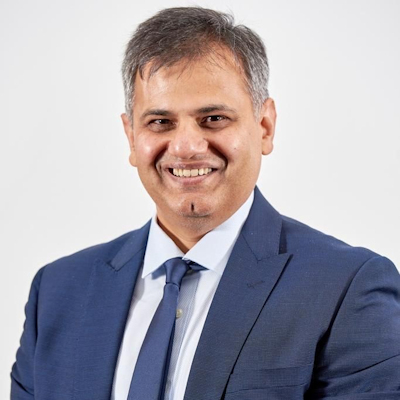 The British Islamic Medical Association (BIMA) is working with the NHS to organise a series of health days across the country, including one in Leeds on 11 February.
The British Islamic Medical Association (BIMA) is working with the NHS to organise a series of health days across the country, including one in Leeds on 11 February.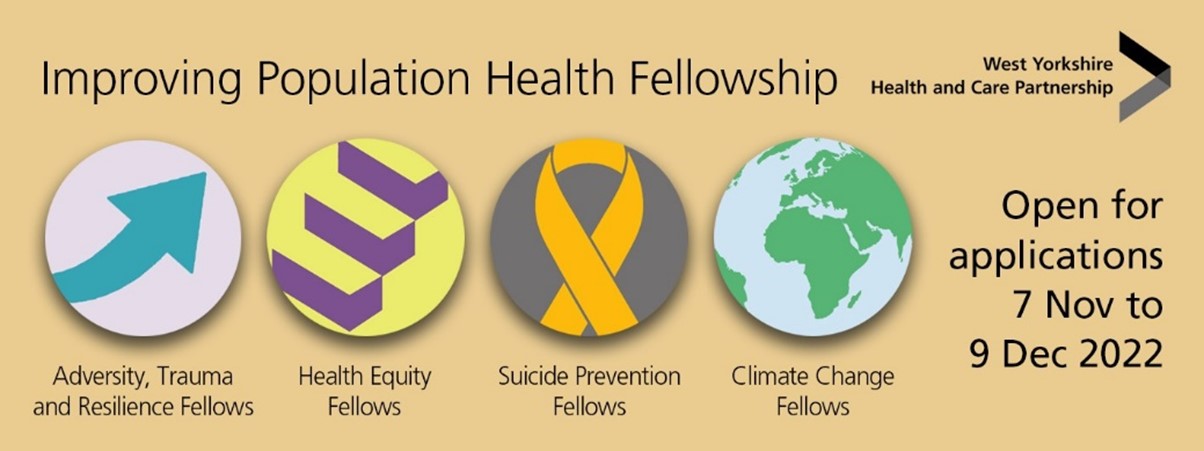 We are on the lookout for public health trained mentors and project ideas for the next cohort of Improving Population Health Fellows covering adversity, trauma and resilience; health equity; suicide prevention and climate change. As a mentor, you’ll provide support and guidance for fellows during their time on the programme from March 2023 to March 2024. You’ll also help them to refine, deliver and evaluate their chosen project.
We are on the lookout for public health trained mentors and project ideas for the next cohort of Improving Population Health Fellows covering adversity, trauma and resilience; health equity; suicide prevention and climate change. As a mentor, you’ll provide support and guidance for fellows during their time on the programme from March 2023 to March 2024. You’ll also help them to refine, deliver and evaluate their chosen project.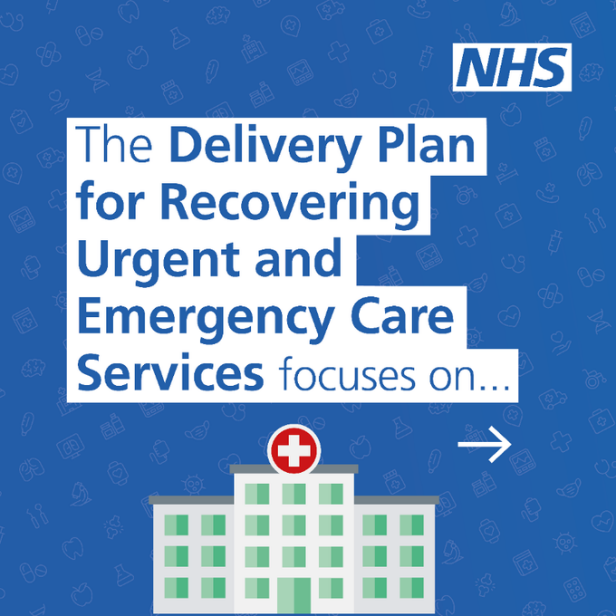 The NHS and the government have published a new blueprint to help recover urgent and emergency care services, reduce waiting times and improve patient experience.
The NHS and the government have published a new blueprint to help recover urgent and emergency care services, reduce waiting times and improve patient experience. Next week is
Next week is  Following a successful pilot, the Yorkshire Ambulance Service (YAS) mental health response vehicle, which is operated by clinical staff who have had additional mental health training, is now operating as ‘business as usual’. The vehicle has been live from Tuesday 24 January in Hull and takes the number of permanent vehicles in operation up to three –in Maltby (South Yorkshire), Wakefield (West Yorkshire) and Hull. The aim is to further extend the number of vehicles in the next 12 months, using data from YAS and the police to identify the best locations.
Following a successful pilot, the Yorkshire Ambulance Service (YAS) mental health response vehicle, which is operated by clinical staff who have had additional mental health training, is now operating as ‘business as usual’. The vehicle has been live from Tuesday 24 January in Hull and takes the number of permanent vehicles in operation up to three –in Maltby (South Yorkshire), Wakefield (West Yorkshire) and Hull. The aim is to further extend the number of vehicles in the next 12 months, using data from YAS and the police to identify the best locations.